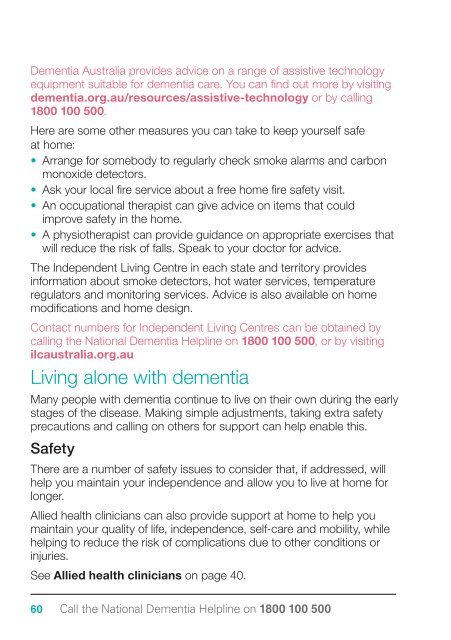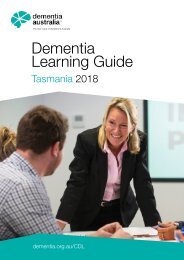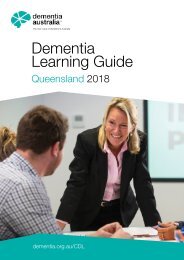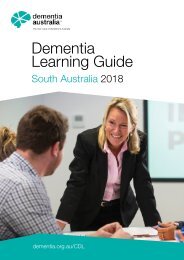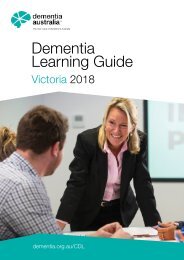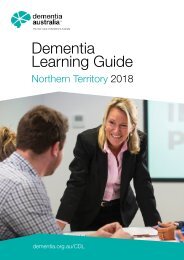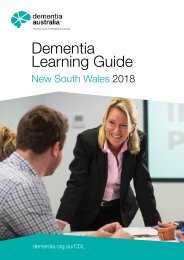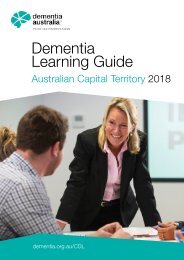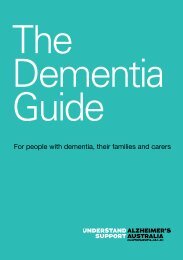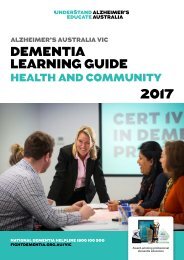Dementia Australia | The Dementia Guide
The Guide will also be used by the family and friends of someone with dementia, as it will contain information for anyone taking on a caring role. It will help people to understand more about dementia and the emotional impact of a diagnosis, the available drug treatments, and support and services that are available. It will include information about living well with dementia and about making plans for the future.
The Guide will also be used by the family and friends of someone with dementia, as it will contain information for anyone taking on a caring role. It will help people to understand more about dementia and the emotional impact of a diagnosis, the available drug treatments, and support and services that are available. It will include information about living well with dementia and about making plans for the future.
You also want an ePaper? Increase the reach of your titles
YUMPU automatically turns print PDFs into web optimized ePapers that Google loves.
<strong>Dementia</strong> <strong>Australia</strong> provides advice on a range of assistive technology<br />
equipment suitable for dementia care. You can find out more by visiting<br />
dementia.org.au/resources/assistive-technology or by calling<br />
1800 100 500.<br />
Here are some other measures you can take to keep yourself safe<br />
at home:<br />
• Arrange for somebody to regularly check smoke alarms and carbon<br />
monoxide detectors.<br />
• Ask your local fire service about a free home fire safety visit.<br />
• An occupational therapist can give advice on items that could<br />
improve safety in the home.<br />
• A physiotherapist can provide guidance on appropriate exercises that<br />
will reduce the risk of falls. Speak to your doctor for advice.<br />
<strong>The</strong> Independent Living Centre in each state and territory provides<br />
information about smoke detectors, hot water services, temperature<br />
regulators and monitoring services. Advice is also available on home<br />
modifications and home design.<br />
Contact numbers for Independent Living Centres can be obtained by<br />
calling the National <strong>Dementia</strong> Helpline on 1800 100 500, or by visiting<br />
ilcaustralia.org.au<br />
Living alone with dementia<br />
Many people with dementia continue to live on their own during the early<br />
stages of the disease. Making simple adjustments, taking extra safety<br />
precautions and calling on others for support can help enable this.<br />
Safety<br />
<strong>The</strong>re are a number of safety issues to consider that, if addressed, will<br />
help you maintain your independence and allow you to live at home for<br />
longer.<br />
Allied health clinicians can also provide support at home to help you<br />
maintain your quality of life, independence, self-care and mobility, while<br />
helping to reduce the risk of complications due to other conditions or<br />
injuries.<br />
See Allied health clinicians on page 40.<br />
60 Call the National <strong>Dementia</strong> Helpline on 1800 100 500


